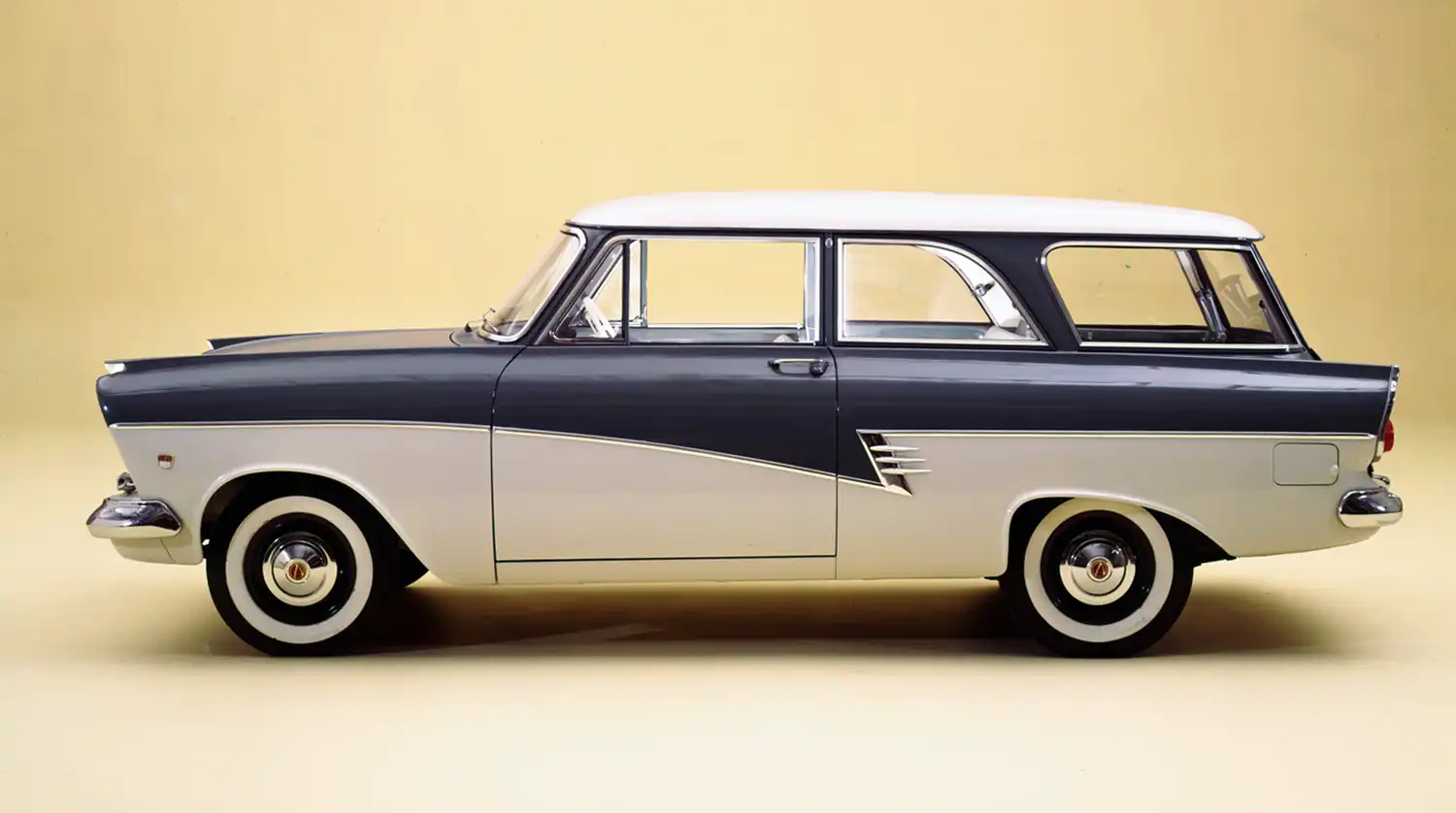
Some cars simply hold a special place in history. They transcend their role as mere transportation, becoming symbols of an era. The 1960 Ford Taunus history in Germany is certainly one such fascinating journey. This humble yet impactful vehicle played a significant role in shaping the post-war automotive landscape. It captured the spirit of a nation rebuilding and reconnecting. Let’s explore its intriguing past.
Birth of a German Auto Icon: Early Development
Ford’s presence in Germany stretches back decades. Ford-Werke AG, based in Cologne, was crucial to the brand’s European strategy. The Taunus line, named after the German mountain range, became a staple. The 1960 model year marked a pivotal point for the Taunus. It brought fresh styling and improved engineering to the forefront. This era saw a demand for reliable, affordable cars.
Design Evolution: Shaping the 1960 Taunus
The 1960 Ford Taunus benefited from a distinct design philosophy. It blended European sensibilities with contemporary American influences. The “P3” series, often called the “Badewanne” (bathtub) due to its unique silhouette, truly stood out. Its smooth lines and integrated fenders were quite modern for the time. This distinctive shape provided both style and improved aerodynamics.
Powering the People: Engine and Performance
The 1960 Ford Taunus offered practical and efficient engine options. Most models came with reliable four-cylinder engines. These powertrains prioritized fuel economy and dependability over outright speed. For example, the 1.5-liter engine provided sufficient power for everyday driving. Its robust design meant low maintenance and long-term service.
The cars featured a column-mounted gear shift, which was common then. Suspension systems were designed for comfort on varying road surfaces. This made the Taunus a pleasant car for daily commutes and longer journeys. Drivers found the handling predictable and reassuring. This balance of features made it very appealing.
Driving Dynamics: A Comfortable Ride
The Taunus wasn’t a performance car, but it offered a comfortable and stable ride. Its independent front suspension provided good road holding. The leaf spring rear axle also contributed to its relaxed nature. Drivers appreciated the straightforward controls. This focus on comfort made it a popular family car.
Societal Impact: More Than Just a Car
The 1960 Ford Taunus was more than just a car; it was a symbol of progress. It helped many German families achieve mobility and independence. Owning a Taunus represented a step forward in the post-war economic boom. It became a familiar sight on German roads. This widespread adoption cemented its place in society.
Cultural Significance: A Reflection of Its Time
The Taunus reflected the changing times in Germany. It represented a desire for modernity and accessibility. Advertising campaigns often highlighted its reliability and family-friendly nature. It appeared in films and television shows, further embedding it in popular culture. Its presence became synonymous with the era.
Legacy and Heritage: A Cherished Classic
Today, the 1960 Ford Taunus holds a special place in automotive heritage. Enthusiasts cherish these models for their historical significance and charming design. Many examples are still lovingly preserved and driven. Its simple mechanics make it relatively easy to maintain. This enduring popularity speaks volumes about its quality.
Collectible Status: Valued by Enthusiasts
Collecting a 1960 Ford Taunus connects you with a piece of history. These vehicles represent a bygone era of straightforward, dependable motoring. Their unique design continues to draw attention at classic car shows. It serves as a reminder of Ford’s strong presence in Germany. The Taunus truly left its mark.
The Taunus Through the Decades: Enduring Appeal
The Taunus nameplate continued for many years after 1960, evolving with the times. However, the 1960 model year stands out as a particular highlight. Its distinct “bathtub” shape and its role in a recovering nation make it iconic. Its heritage is woven into the fabric of German automotive history.
The 1960 Ford Taunus truly carved out its own unique niche. It was a car designed for its time, yet its impact continues to resonate today. Its history reflects innovation, societal change, and a lasting legacy. It is indeed a testament to thoughtful automotive design and accessibility.
Disclaimer: Information regarding the 1960 Ford Taunus is for historical and general informational purposes only. Specific details may vary based on model variations and regional specifications.
Source: Ford Heritage Vault
